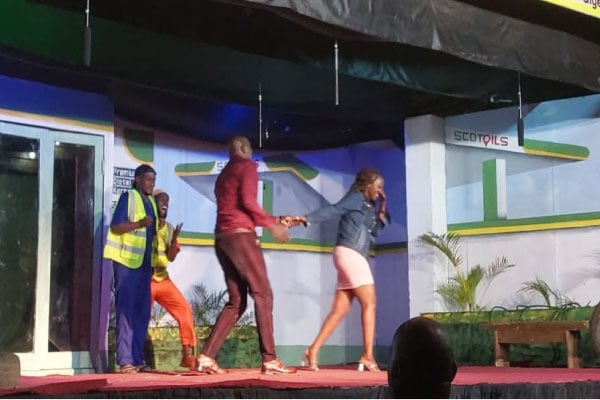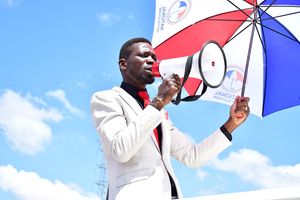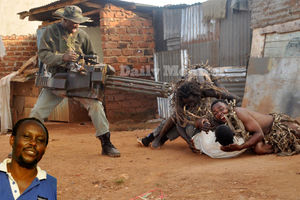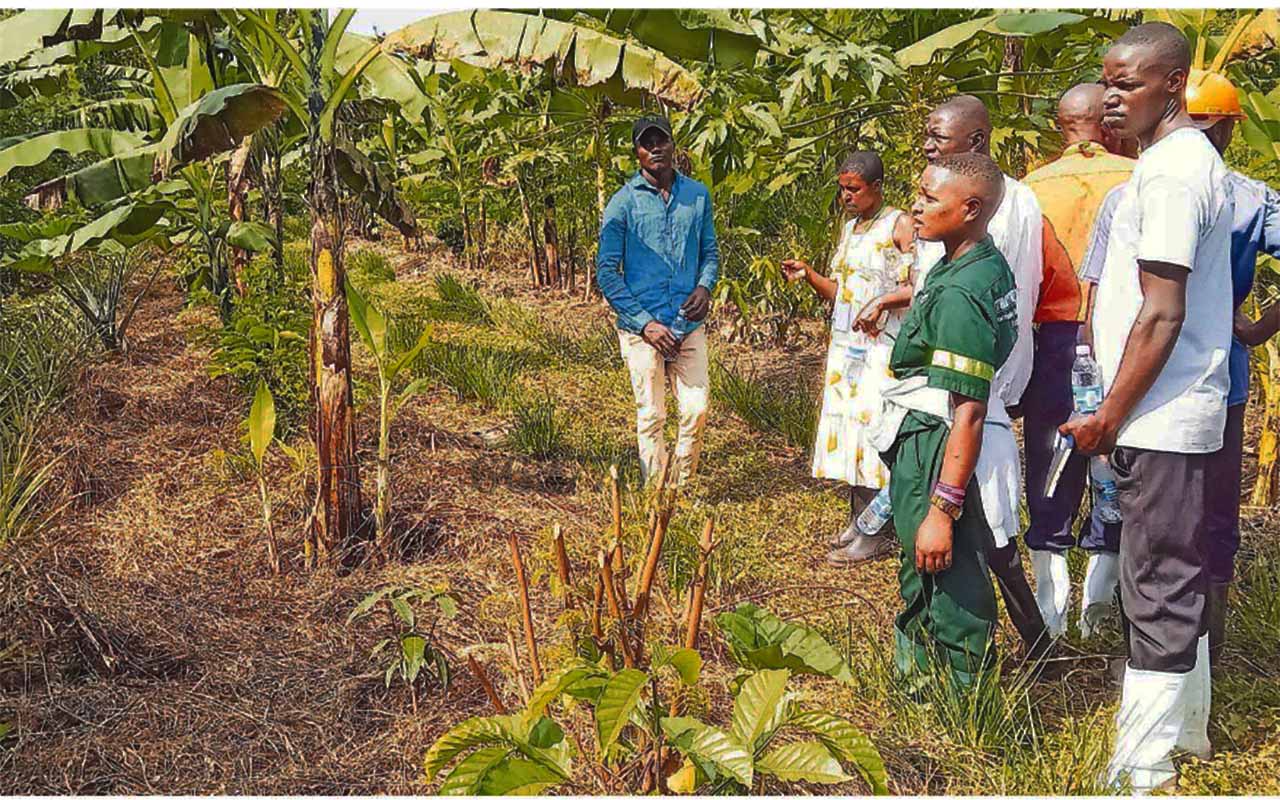
Ensitano when it was restaged at Bat Valley Theatre in 2022. PHOTO | COURTESY OF BAT VALLEY THEATRE
By 2003, That’s Life Mwattu was in its final bend; the show had almost lost its way. It was also the time when Ugandans had just fallen in love with telenovelas, so the attention was divided on TV.
Theatre was on the rise, Bakayimbira Dramactors were thriving at Pride Theatre, Afri-Talent and Diamond Ensemble had Bat Valley Theatre in a chokehold, and The Ebonies had established a home at Theatre La Bonita.
Once in a while, playwrights such as Alex Mukulu would stage shows at the National Theatre, but other directors were putting on shows at the National Theatre that all classes of theatre consumers were catered for.
Even the students of literature had a lot of content to pick from. For instance, plays such as The Marriage of Anansewa by Efua T. Sutherland or Trials of Brother Jero by Wole Soyinka were staged in three venues the Bat Valley Theatre, Pride Theatre, and the National Theatre. There were other independent shows at the Sharing Hall in Nsambya, school halls, and at times, schools that came together and put on shows. Theatre was so big that everyone was trying to tap into its popularity, at the beginning of 1998, when Radio Simba was established, one of their popular shows was Kkooti Lutiko, a situational legal drama.
Before Radio Simba, though, Central Broadcasting Services (CBS) had been the first vernacular station to dig into theatre’s popularity, hiring some of the biggest stars of theatre on pivotal shows such as the breakfast show, where both Kato Lubwama and Abby Mukiibi were hosts.
At the time, local TV was going through a revolution championed by WBS TV. The new station, which opened at the end of 1998, was sleek. The programming was different, and they brought more local drama to the screen.
They were the first TV dramas that were not by The Ebonies at the time. With an adaptation of Bakayimbira’s Ekirya Atabala, a prolonged version of Kigenya Agenya, WBS was getting the audience’s attention.
In an interview with the African Theatre Magazine, Mariam Ndagire says they were approached by people from WBS TV, having picked interest in Ensitano, one of their stage plays.
The team at Afri-Talent, together with another team from WBS, started working on turning Ensitano into a TV series. From one episode to the next, Ensitano became a household name, the theatre stars that existed became bigger, and new ones were also born.
From Ruth Kalibala, Patricko Mujuka, and Male Musa to Charles Bwanika Ssensuwa, Ensitano got them from being theatre stars to bona fide superstars; they soon spread their celebrity to radio, TV, music, and music videos.
Soon, the stars people badly paid to see on stage every Saturday and Sunday were accessible on TV once or twice a week. Others were finding them on the radio daily, Abby Mukiibi had worked on Kalisoliso on CBS since 1996, Mulindwa Muwonge, Charles Bwanika, Ruth Kalibala, and Charles Ssenkubuge were all working on different Luganda radio stations.
Others who were not on radio had carved out careers in music. With theatre becoming popular, the music they had composed for their plays started making it to the airwaves. Songs such as Rachel were initially part of plays by the Nalubale Theatre Club, of which Mulindwa Muwonge was a member.
In fact, Muwonge’s short-lived music career was mainly a result of songs he had performed in plays, and somehow, Ndagire pursued a career in music in a similar manner.
“The radio started playing songs we sang for plays, and somehow people kept requesting them. When CBS started Enkuuka, we were curated as performers; generally, one thing led to the other, and people started asking for more songs,” she says.
Kato Lubwama originally wrote Ndagire’s opening song, Mulongo Wange, for the play Safari.
“I could say I accidentally became a recording artiste,” she says.
With TV shows such as Ensitano creating opportunities, theatre makers branched off to TV presenting, radio and soon, something bigger came for them, weddings.
“It ate us slowly, and we could not notice; people splashed money in our faces, and we wanted money. Then we became reluctant to create; we started picking situations and lines from our plays and putting them on the radio; it killed the appetite of those that used to pay to see us on weekends,” Ndagire says.
Weddings hired theatre as a whole, the actors were hired as MCs while the likes of Mariam Ndagire were hired to sing.
The more actors were hired to do other things than theatre was the more theatre suffered, the more TV shows people created for TV, was the more seats in the theatre started drying up.
But that was just the beginning.








